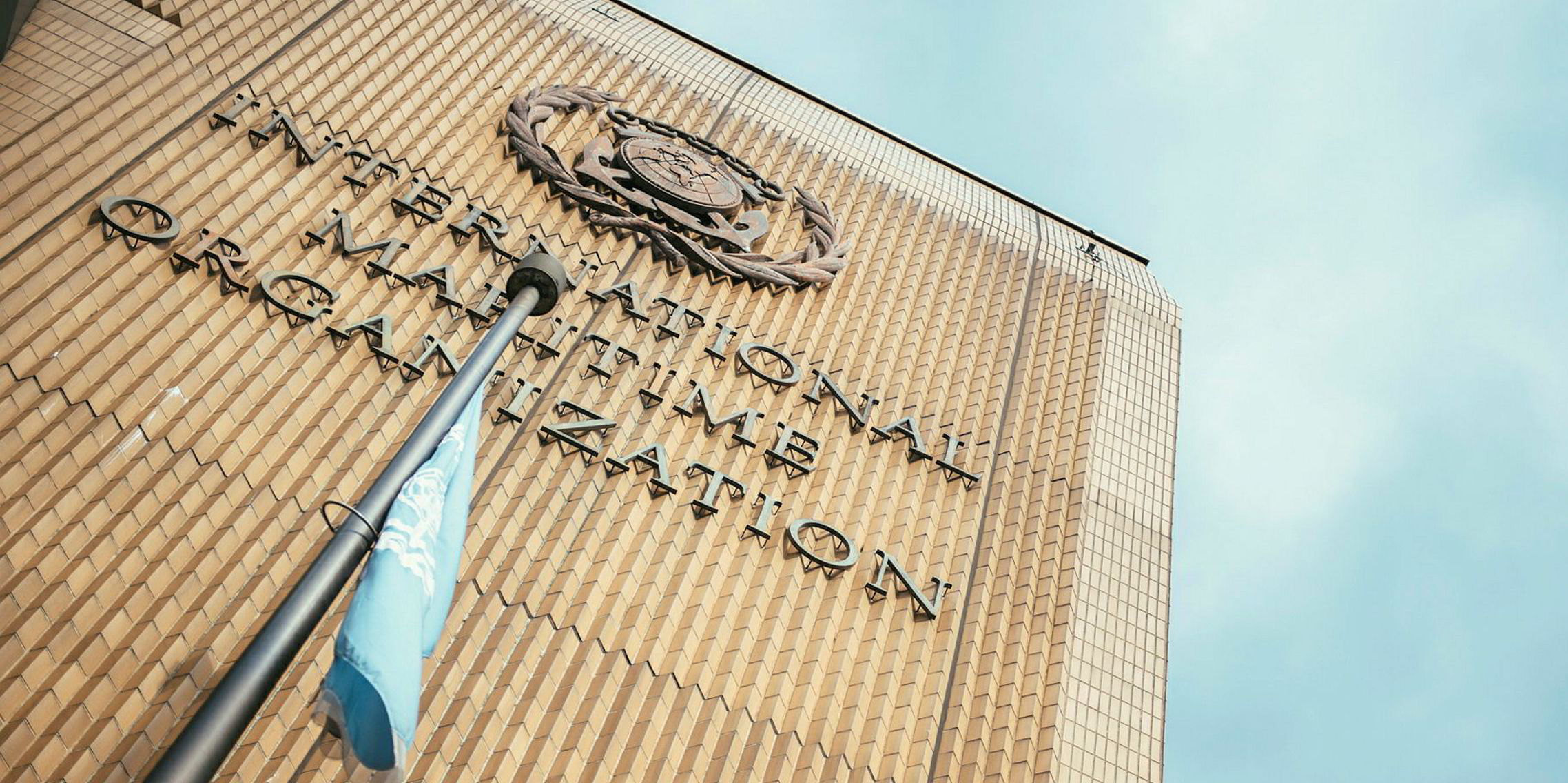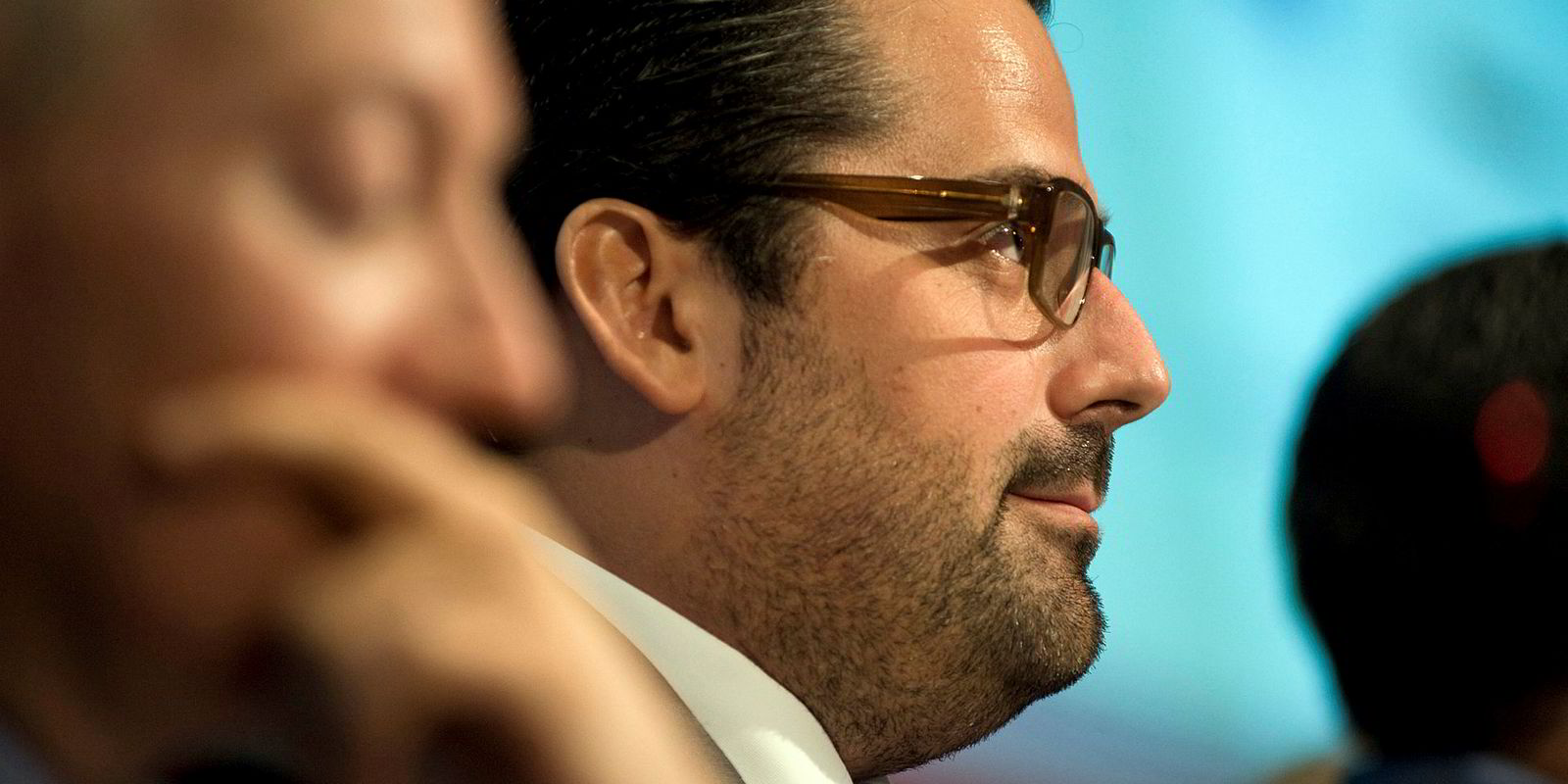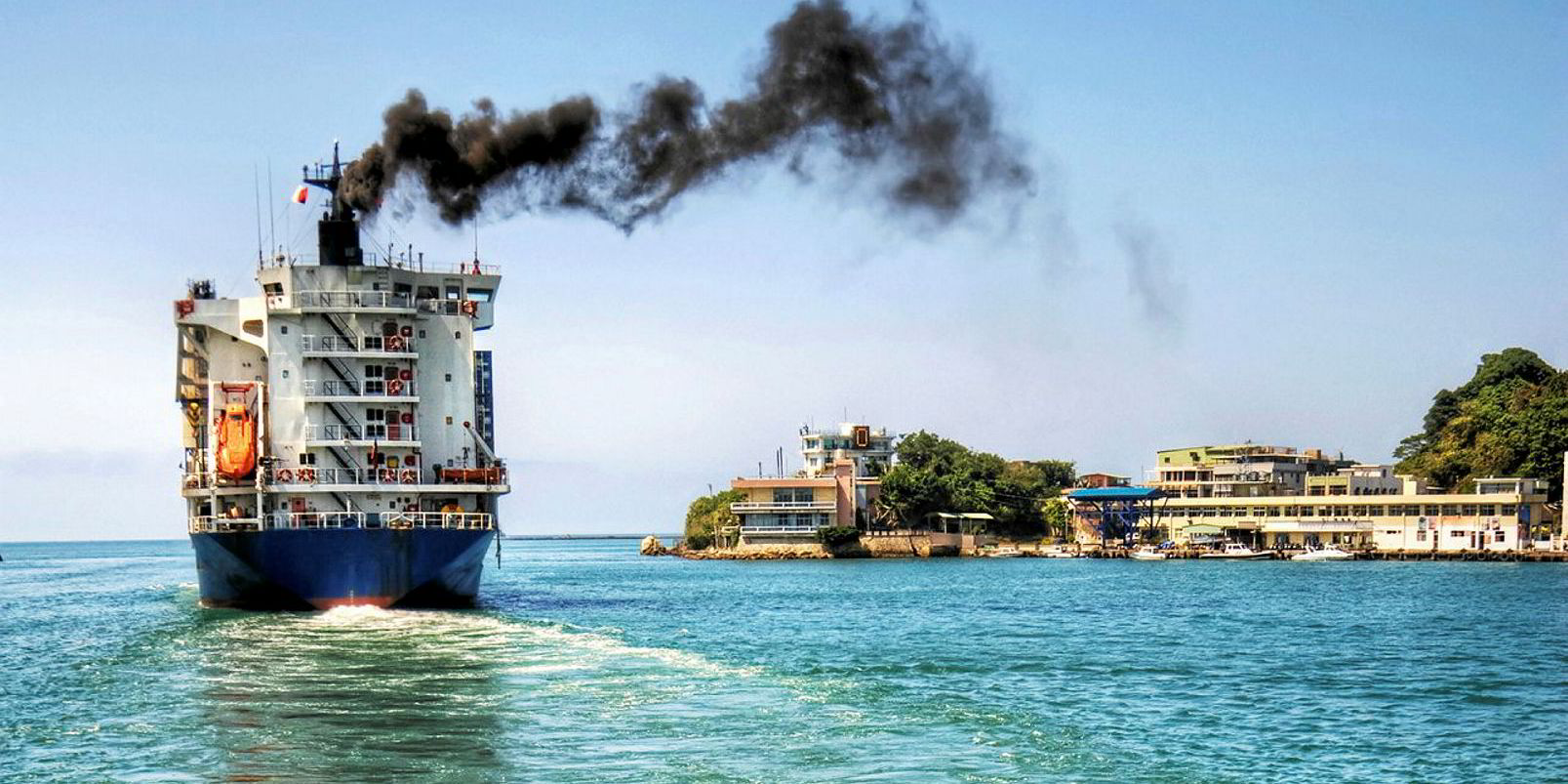Advocates for scrubbers are giving little credence to scientific claims that the equipment may harm marine life.
In recent weeks, TradeWinds has reported on several studies and reports expressing concerns about potential environmental damage. The latest was the European Commission’s call last week to urgently “harmonise” IMO guidelines over liquid discharges from the devices.
“The scientific evidence is being really ignored in a lot of the popular and even the industry debates,” Star Bulk Carriers president Hamish Norton said this week when asked about the EC report.
“The scientific evidence is basically that if you use a scrubber, the wash water largely meets, in most cases, European Union standards for drinking water. In every case, it meets European Union standards for surface waters.”
Norton is also spokesman for Clean Shipping Alliance 2020, a shipowners group that backs scrubbers as an environmentally safe way to meet IMO 2020’s regulation for a 0.5% sulphur content limit on marine fuel.
The 5 February report to the EU secretary-general says the IMO must draft “urgent” measures on scrubbers, given their potential harm to the marine environment.
The document, sent on behalf of the 28 EU nations, is based on a December 2018 study by the German Environment Agency that calls scrubbers a “new direct pollution source”.
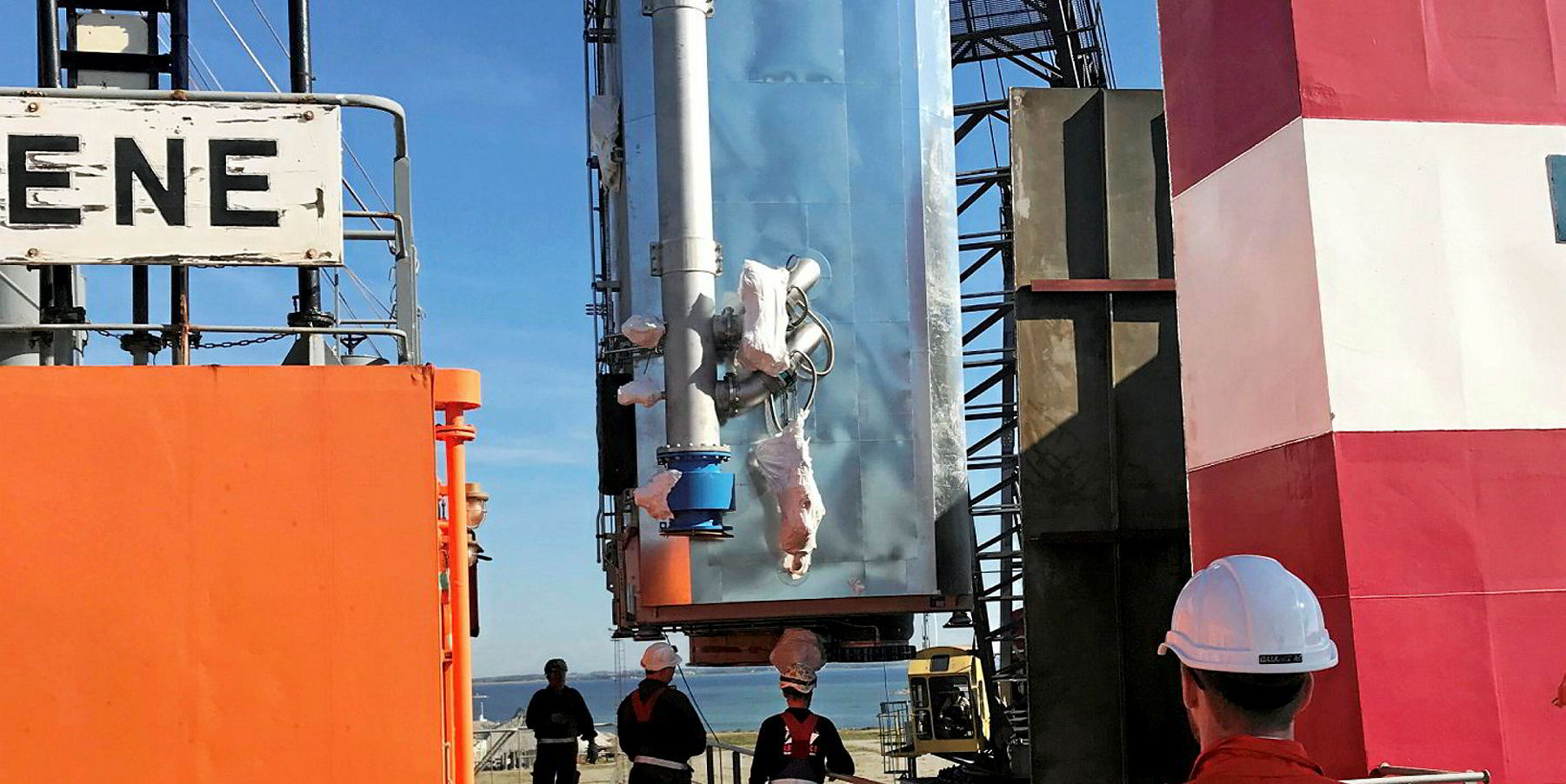
Speaking during an earnings conference call, Norton said burning IMO 2020-compliant fuel without scrubbers is worse for the environment, because scrubbers limit the release of toxins into the sea.
“If you burn compliant fuel without a scrubber, you’re putting these heavy metals and polycyclic aromatic hydrocarbons into the air, which then fall into the water,” he said.
“It’s not as though you’re not contributing to polycyclic aromatic hydrocarbons and heavy metals if you don’t use a scrubber.
“Just to the contrary: you’re putting them first into the air before you’re putting them into the water.”
PR concerns
However, Norton admitted that the use of scrubbers does pose a public relations challenge, given the scientific studies and recent bans by ports around the world.
“It’s taken some time, but the Clean Shipping Alliance 2020 is finally getting up to speed,” he said. “We’ll be doing the utmost to get the facts across and make sure they are heard.”
He said Star Bulk does not consider the port scrubber bans to be a threat to its success as a worldwide shipping company.
“We were not counting on being able to use the scrubbers in any port when we did our analysis,” Norton added. “We would start to be concerned if initiatives went beyond that, and that is hopefully what the Clean Shipping Alliance 2020 will be addressing.”
The EC’s clear signal for change might curtail further scrubber investments, because shipowners are reluctant to spend millions on a technology for which rules keep changing, according to Lars Carlsson, a partner with Windship Technology.
“Scrubbers are now dead ducks, and rightly so,” he told TradeWinds.

Windship Technology is a London-based developer of the Auxiliary Sail Propulsion System, which consists of two 35-metre-tall deck masts, each with three aerodynamic fixed wings.
Carlsson claimed that scrubbers encourage ships to run at full speed, leading to 35% higher airborne CO2 emissions and pumping even more toxic scrubber effluents into the sea.
“It is a matter of decency by the shipping industry to address serious environmental problems and do our part in the global climate change efforts,” he said.
‘It’s not decent, it’s greedy’
“Increasing emissions into the oceans and carbon dioxide emissions into the atmosphere by scrubber operation is not decent but greedy.”
He said major charterers are ready to take wind-powered ships on long-term charters, which would return shipping to the business of ocean transportation instead of asset play speculation.
Clean Shipping Alliance 2020 member Carnival Corp said wash water tests show that scrubbers are “safe and effective” in protecting air and water quality standards.
“We agree that our advanced air quality systems [AAQS], or ‘scrubbers’, significantly improve air emissions, and are even better than MGO [marine gasoil] in some ways, but we disagree entirely with the comments about the marine environment,” Carnival vice president of corporate shipbuilding Mike Kaczmarek told TradeWinds.
“The document submitted by the German Environment Agency ... draws some broad conclusions from preliminary evaluation of a small set of samples and has not yet been evaluated or peer-reviewed.”
Carnival has said it has collected 400 scrubber effluent samples but has not shared those results with TradeWinds.
Kaczmarek also discounted the German study’s claim that scrubbers are a “new and emerging” source of ocean pollution.
“The only thing that is actually new, and of critical importance, is the improvement to air quality that will be resulting from the new regulations,” he said.
“This is exactly what the IMO had in mind when preparing these regulations in consultation with GESAMP [a United Nations advisory body of marine environmental protection experts] and others, and approving AAQS as an acceptable method of compliance.”
Eagle Bulk Shipping, Genco Shipping & Trading and Safe Bulkers are among many companies that plan to invest heavily in scrubber technology to meet the IMO 2020 sulphur mandate.
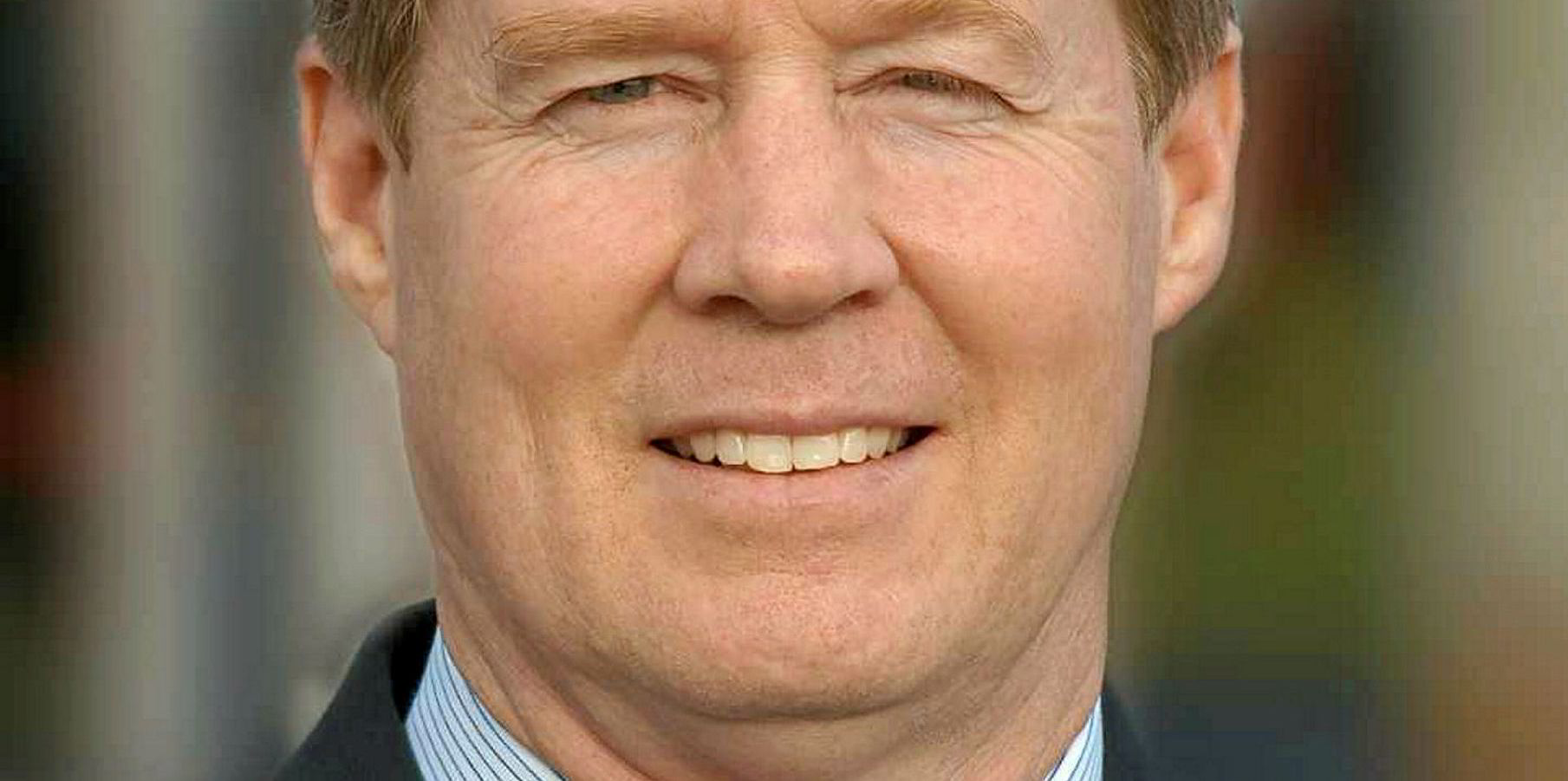
Scorpio Group, another scrubber adopter, said it will reserve comment on the issue for when Scorpio Tankers holds its fourth-quarter earnings call.
Scorpio Group environmental compliance director Ole Christian Schroder has urged the IMO to stick to its current scrubber regulations, five months after his company aired plans to install 100 scrubbers across its tanker and bulker fleets.
IMO committee tees up meeting
The IMO’s Marine Environment Protection Committee (MEPC) will discuss the EC’s call for harmonised guidelines at its 74th session in May.
“If they agree with the proposal, the MEPC will decide which body should carry out this work,” spokeswoman Natasha Brown said.
The MEPC could order the subcommittee on pollution prevention and response (PPR) to make the changes, backed by a quarter of roughly 100 member states attending.
“The other member states have the chance at MEPC to say if they support it or not,” she said.
The PPR subcommittee’s current review includes developing guidance on accidental breakdowns, instrument malfunction, temporary non-compliance and emission testing.
"The scope of the review makes no reference to reviewing the wash water discharge criteria limits and doesn't include a consideration of restricting use of scrubbers or their discharge,” Brown added.
GESAMP will advise the PPR subcommittee on aspects such as wash water discharge criteria and data collection.
The subcommittee will meet for its sixth session from 18 to 22 February.
IMO guidelines
Whatever changes may come to the IMO's guidelines on scrubber effluent, Brown pointed out that the individual flag states have the final say on what is legal and what is not.
“The exhaust gas cleaning system which are permitted by the flag state have to meet the criteria set by the flag state, which should take into account the guidelines,” she said.
“Fines and penalties are set by national legislation, so the port or coastal state sets the fines for violations in their jurisdiction.”

